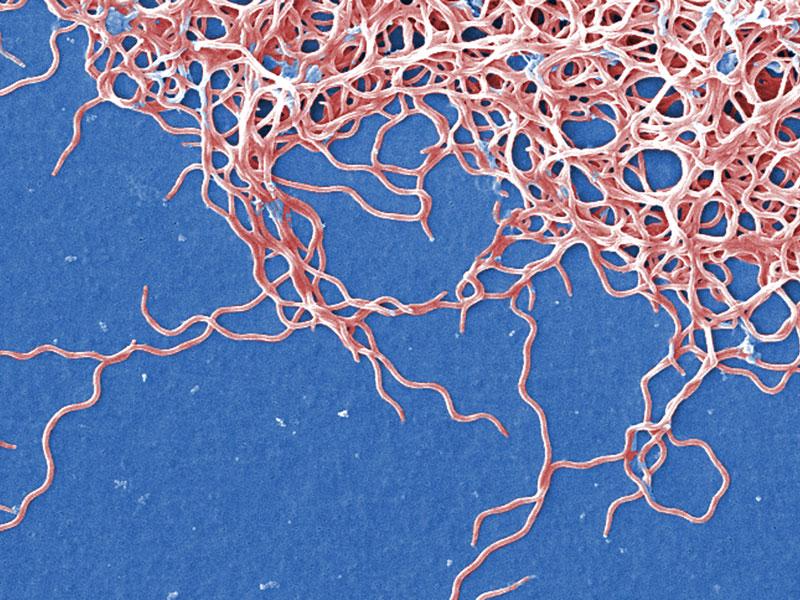Bacteria form a very diverse group of organisms, from the harmless ones in our digestive tract and on our skin that make up 90% of our cells to the ones everyone hears about that cause nasty infections or even death. Antibiotics can often eliminate a bacterial infection, but in other cases, alternate intervention is necessary. Borrelia burgdorferi, for example, is the bacterium that causes Lyme disease, but unless antibiotics are used right away, patients can develop circulatory and nervous system issues.

However, scientists published Friday that the Lyme disease bacterium is the only known organism not to use iron in its cellular processes. Iron is a necessary component in oxidation-reduction reactions in the cell, and vertebrates use it in proteins that carry oxygen, such as hemoglobin. Instead of iron, B. burgdorferi uses manganese, the previous metal in the periodic table. Manganese is also necessary in cells, but only this bacterium does a full substitution for iron, and this property enables it to hide from our immune systems because some of the body’s defenses include starving invading cells of iron.
Despite the issues of the manganese system in terms of detecting it, it creates the potential for very specialized treatment. An antibiotic that would target the manganese components in the bacterium would target neither our own cells nor cells of any other type because no other organisms use manganese in that fashion. In cases where antibiotics weren’t administered quickly enough, manganese-targeting medicine could eliminate the bacteria and get rid of the disease.







